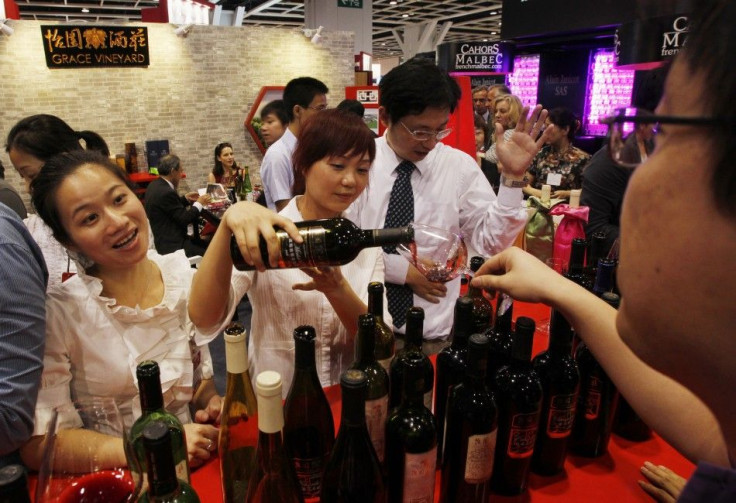Vineyards By Christie’s Helps Wealthy Chinese Acquire Properties In Bordeaux, Burgundy

Christie’s auction house has opened what it’s calling the first estate agency where wealthy Chinese can snap up not just a fine bottle of wine but also the vineyard it came from.
Vineyards by Christie’s International Real Estate brings together Christie’s fine-wine experts and the network’s luxury-property specialists “to offer a discrete consultative service for clients looking to acquire vineyards in the world’s most sought-after wine regions.”
Christie’s international wine director for Europe and Asia, David Elswood, said the program was conceived to meet demand from clients at Christie’s wine auctions in Hong Kong, who’ve increasingly requested expert advice on how to purchase overseas properties.
“We are uniquely positioned to offer this highly specialized vineyard advisory acquisition service,” he said, adding that in recent years, domestic thirst for foreign wine in Asia had grown exponentially.
The auction house reported a new record of $36.9 million from nine wine sales in Hong Kong last year. Similarly, Christie’s claims affluent Chinese investors’ demand for foreign wine has grown to the point where they are now interested in owning foreign wine-producing estates.
There were 35 chateaux with vineyards sold in the whole region of Bordeaux in 2011, and 60 percent of them went to Chinese buyers, according to Societes d’Amenagement Foncier et d’Etablissement Rural, or Safer, a quasi-governmental entity partly funded by the private sector. Of the 27 vineyard-chateaux sold in 2012, Safer reported that 62 percent went to Chinese buyers.
Clients participating in the Vineyards program will receive advice from Christie’s wine experts and an introduction to vineyards available for purchase around the world by a Christie’s property specialist, as well as custom travel arrangements and translation services, if needed.
“It is essential that buyers work with experts who know the industry, operate in the local market, are well connected with local vineyard owners and are immersed in a region’s wine industry network,” explained vineyard property specialist Michael Baynes of Maxwell-Storrie-Baynes in Bordeaux. “Vineyard markets in sought-after locations are often small and discrete, and without expert guidance, buyers never even know they are on the market.”
Baynes added, “It is not uncommon for more than half of our vineyards to be privately listed -- never advertised and never placed on websites.”
China and other Asian nations have become hotspots for luxury consumption, and many high-end marketers have tailored their campaigns to suit clients from the region. Analysts have credited an increase in demand for fine French wine, in particular, with pushing prices for certain vintages to record highs.
Indeed, China is now the largest export market for bordeaux and the fourth largest export market for burgundy behind Japan, Britain and the U.S. Just this month, the Regional Council of Burgundy symbolically moved its only Asian marketing office from Singapore to Hong Kong.
The Chinese have also visited France’s wine regions in record numbers -- a move that may have led to the increased interest in vineyard acquisitions. The number of Chinese staying at least one night in Burgundy, for example, nearly doubled to 70,000 in 2012 from 38,000 in 2011.
However, their increased presence has not been without controversy. The first Chinese investor in Burgundy, a renowned gambling tycoon with businesses in Macau, paid €8 million ($10.4 million) for a property last year and sparked dire warnings from local growers of a “foreign invasion.”
Although Chinese investors have snapped up dozens of chateaux in Bordeaux since 2008, none had purchased more than a few small plots in Burgundy, and none came with a name as prestigious as Gevrey-Chambertin.
The president of the union of Gevrey-Chambertin wine producers likened the sale to a French investor purchasing a section of the Great Wall of China. However, others said the idea that these French vineyards were privately owned was a myth, and that insurance and pension companies or faceless multinationals were the real owners of most properties in Burgundy and Bordeaux.
© Copyright IBTimes 2024. All rights reserved.






















